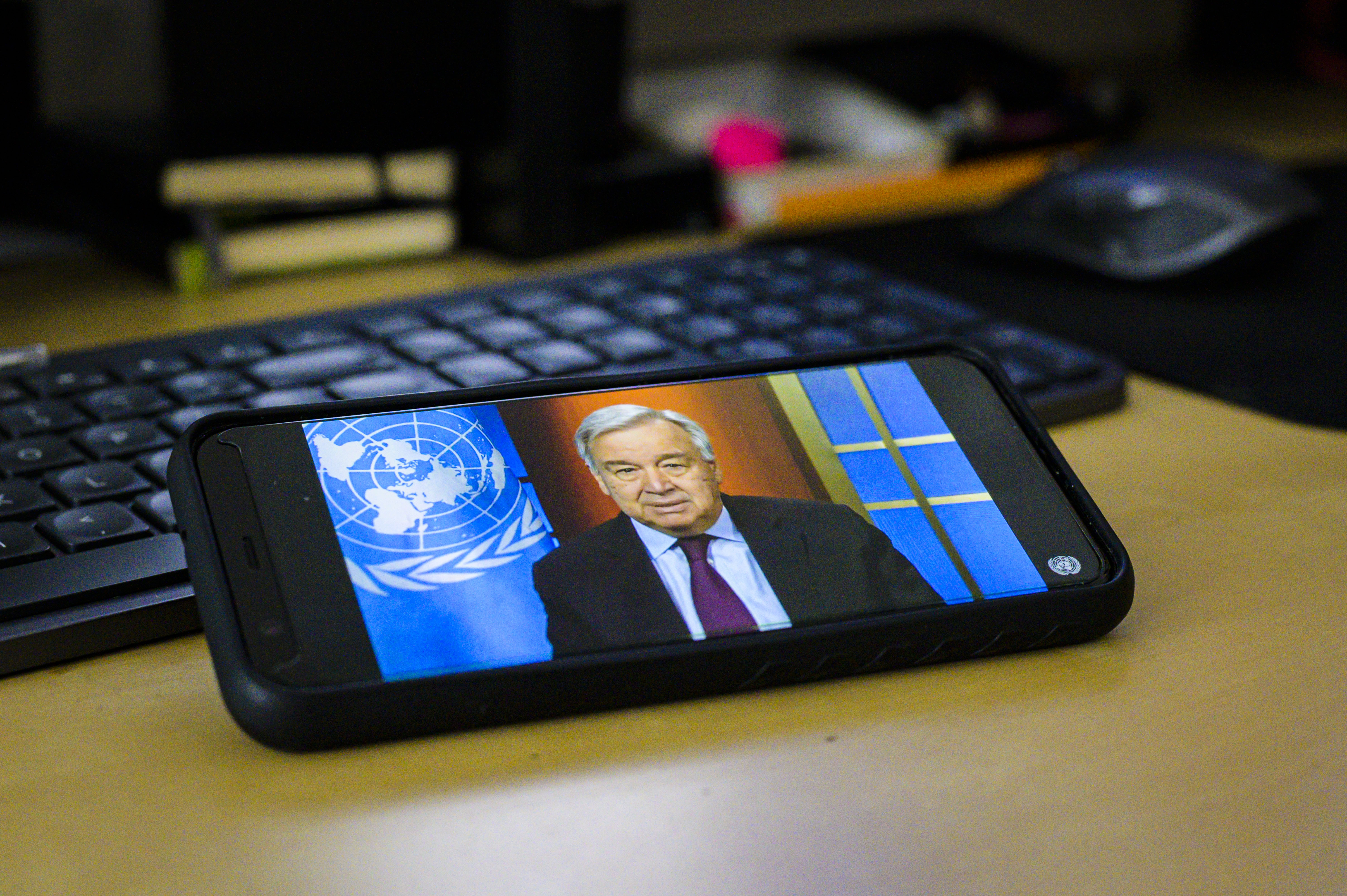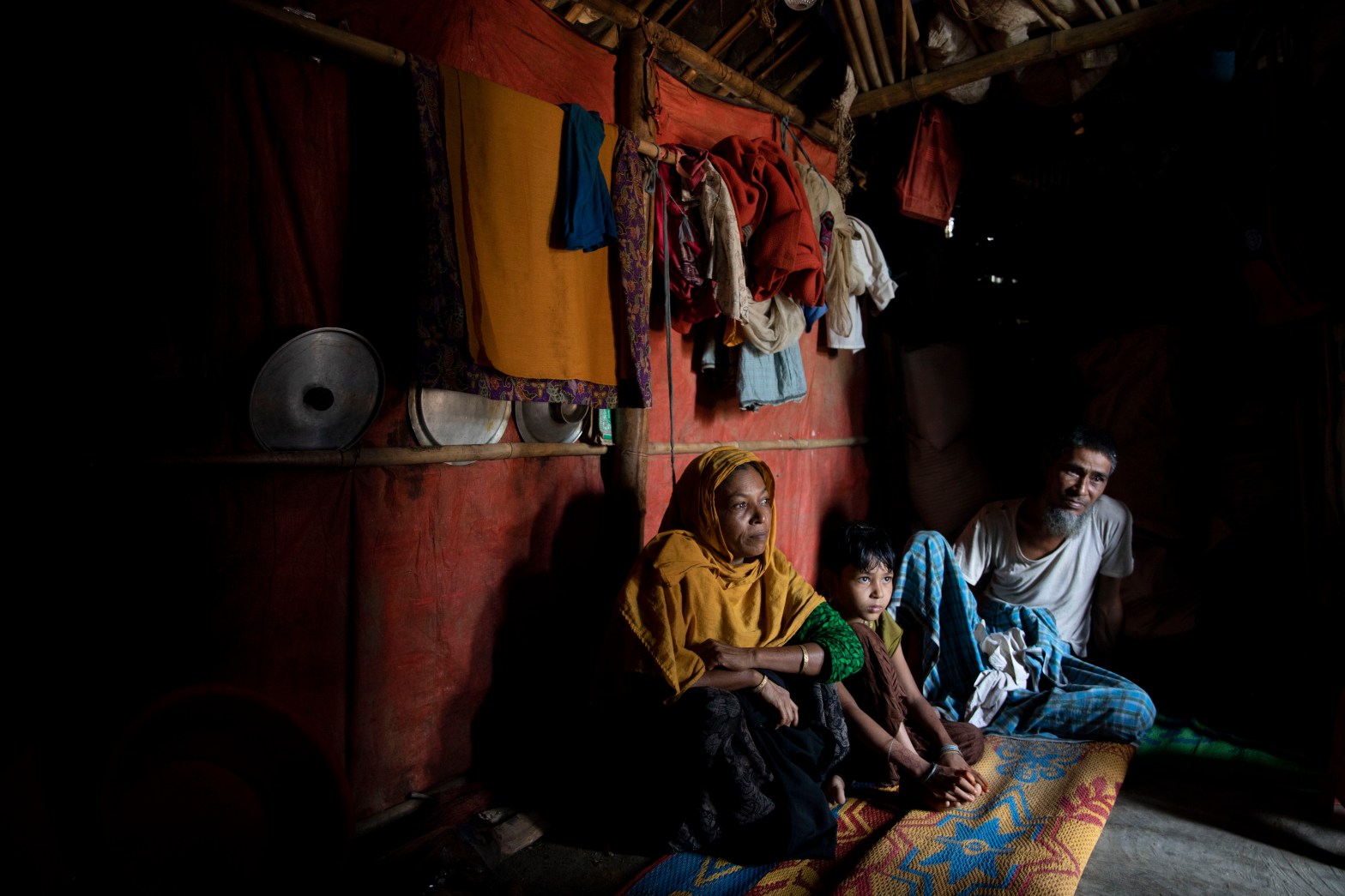The novel coronavirus, and the disease it causes, COVID-19, have triggered unprecedented turmoil and disruption around the world. Middle- and high-income countries in Asia, Europe and North America have been particularly hard hit … so far. The expectation and fear are that it is only a matter of time before the disease strikes with full force less stable societies, where the damage could be exponentially worse. The Department of Political and Peacebuilding Affairs (DPPA) and the rest of the UN system are looking closely at the implications of the spread of the virus in those countries – including those that host Special Political Missions – and sounding the alarm. The virus has changed the way we live. Will it change how the world makes war and peace?
The economic devastation wrought by the coronavirus was relatively easy to predict – at least once it became clear how deadly and contagious the pathogen was. Factory and shop closures are sure signs of immediate and future economic pain. Months into the crisis, however, it is less clear what the ultimate effect will be on the many conflicts and peace processes around the world. What there is in abundance right now is concern that countries and communities ravaged by war will not be able to withstand the onslaught of the virus. UN Under-Secretary-General for Political and Peacebuilding Affairs Rosemary DiCarlo said on Twitter on 20 March that she had heard from sources on the ground about the potentially devastating impact of COVID-19 in the northwestern Syrian region of Idlib, host to hundreds of thousands of displaced people living in precarious conditions, and elsewhere in the country. At the time there were no confirmed cases of the disease in Syria. That is no longer the case.
But Ms. DiCarlo also suggested another potential consequence of the spread of the disease when she wrote that “[I]f anyone … still needed a reason to stop the fighting [in Syria], this is it.” So great is the threat of COVID-19 to life and livelihoods that it should dwarf the reasons parties in conflict put forward to continue to fight. With COVID-19, even the most worn slogans seem justified: We are all – governments, opposition forces, civil society – in this together. The virus truly is our common enemy. The warring parties in Libya were the first to explicitly cite the need to focus resources on fighting COVID-19 as the reason for declaring a humanitarian truce (shaky though it has turned out to be).

On 22 March, Secretary-General António Guterres made an impassioned appeal for an immediate global ceasefire “in all corners of the world.”
The Secretary-General said it is time to “put armed conflict on lockdown and focus together on the true fight of our lives.”
The Secretary-General’s appeal has had an immediate effect. Within days, armed groups in the Philippines, Cameroon and Syria declared they would adhere to his call.
Many UN envoys have also made their own appeals on the back of the Secretary-General’s call.
COVID-19 is also affecting the UN’s work on peace and security in other important ways. On 26 March, Bolivia’s Supreme Electoral Tribunal announced it had proposed new dates for presidential elections as the polls could not be held on the original date of 3 May owing to the effects of the pandemic; the elections may now take place between 7 June and 6 September 2020. Support to the elections is a major part of the UN initiative for peace consolidation in Bolivia agreed in the wake of the turmoil in the country at the end of last year. Should the pandemic endure, we will inevitably see other elections postponed, with the potential risks that entails. DPPA is acutely aware of this aspect of the health crisis as it is the UN system’s focal point for providing electoral assistance to countries around the world.

Throughout the coronavirus crisis, one overriding message from the Organization has been that the work of the UN – political, peacekeeping, development, human rights and humanitarian – goes on, albeit under difficult or unusual conditions. At headquarters in New York, and in many other UN duty stations, that means video and teleconferencing, among other measures. For the core staff of the Organization, this it is accomplished without major difficulties, even if the change can be jarring on such a large scale.
Ms. DiCarlo acknowledges the challenges brought on by the coronavirus crisis in carrying out her work, but stresses that they are not insurmountable.
“We remain focused on providing support and expertise to countries trying to prevent or overcome conflict,” she says. “Obviously, that has become a bit more complicated given the restrictions the virus has imposed on all of us. But we can do a lot of our work remotely, and our colleagues in the field are able to do the same.”
Ms. DiCarlo adds that the crisis is also compelling everyone to look for different, and potentially more efficient, ways of working.
“Even before the crisis we had been devoting a lot of attention on how innovation and technology can help us bring more people –- women, youth, the traditionally disenfranchised — into peace and political processes,” she said. “The current situation should provide a good testing ground. The situation is, among other things, helping us think through some potential issues. For example, for now, it is relatively easy for us to work remotely, as we have the technology and resources. But if more of this work moves to the virtual sphere, how do we ensure those who do not have that access or resources also participate?”
Title picture: Rohingya refugees in the Kutupalong Rohingya Refugee Camp in Cox’s Bazar. UN Photo/KM Asad
